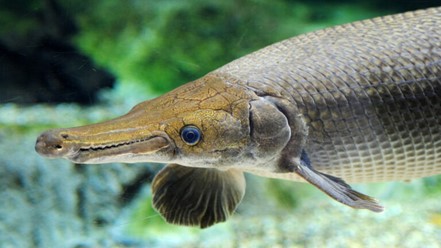- Courses
- GS Full Course 1 Year
- GS Full Course 2 Year
- GS Full Course 3 Year
- GS Full Course Till Selection
- Answer Alpha: Mains 2025 Mentorship
- MEP (Mains Enrichment Programme) Data, Facts
- Essay Target – 150+ Marks
- Online Program
- GS Recorded Course
- Polity
- Geography
- Economy
- Ancient, Medieval and Art & Culture AMAC
- Modern India, Post Independence & World History
- Environment
- Governance
- Science & Technology
- International Relations and Internal Security
- Disaster Management
- Ethics
- NCERT Current Affairs
- Indian Society and Social Issue
- NCERT- Science and Technology
- NCERT - Geography
- NCERT - Ancient History
- NCERT- World History
- NCERT Modern History
- CSAT
- 5 LAYERED ARJUNA Mentorship
- Public Administration Optional
- ABOUT US
- OUR TOPPERS
- TEST SERIES
- FREE STUDY MATERIAL
- VIDEOS
- CONTACT US
Alligator Gar Fish
Alligator Gar Fish
20-06-2023


Latest Context
The finding of an Alligator Garfish (Atractosteus spatula) in Kashmir's Dal Lake which is an invasive species by nature has raised concerns. To understand the extent of the invasion and its potential impact, the Lake Conservation and Management Authority (LCMA) and the Department of Fisheries are collaborating.
Alligator Gar Fish and the Risks Associated
- Introduction: It is a close relative of the bowfin species. It is a ray-finned euryhaline fish (the ability of the creature to mould itself to a wide range of water types that range in salinity). It is the largest species in the ‘gar’ family and one of the biggest freshwater fish in North America. There are many regions in India such as Bhopal and Kerala in which it is found. They have a life span of 20-30 years and grow rapidly.
Protection Status:
- IUCN: Least Concern.
Concerns: It can grow up to eight feet. They are very dangerous for local fish species. They can even sustain themselves in the cold waters of Dal Lake because the temperature they can live in 11-23oC.
The Biological Diversity Act 2002: The Biological Diversity Act 2002 prohibits the presence of invasive fish species that could harm natural fish populations.
Dal Lake
- It is located in Srinagar which is the capital of the Union Territory of Jammu and Kashmir (J&K).
- It is the second-largest lake in J&K and one of the world's largest natural lakes.
- It is named the “Jewel in the crown of Kashmir” or “Srinagar’s Jewel” because it is integral to tourism and recreation in Kashmir.
- Furthermore, it plays an important role in commercial operations in fishing and water plant harvesting.
- Its coverage area is 18 square kilometers. It is part of a natural wetland including its floating gardens.
- “Raad” in Kashmiri is known for its floating gardens. It blossoms with lotus flowers during July and August.



